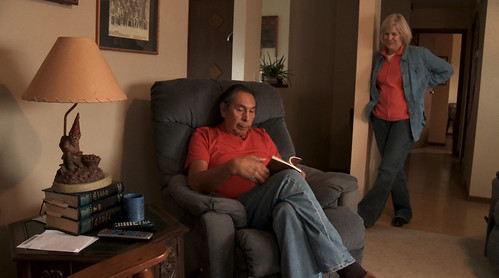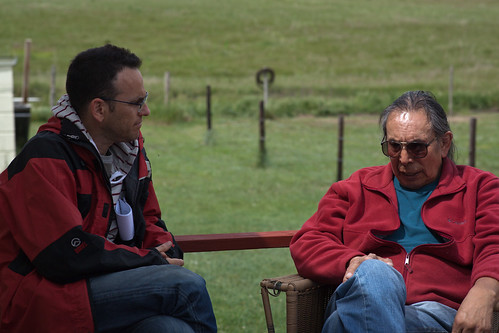

Unfortunately, in the 19th and 20th centuries, the government often actively suppressed Indian culture by banning certain spiritual practices on reservations. It was only in 1978, with the passage of the American Indian Religious Freedom Act, that the government formally established a policy to protect Native American Sacred Sites and traditional forms of worship.
In federal Indian schools, children were often not allowed to be Indians – to express their Native culture or identity in any way was to risk being severely humiliated or abused. Many Native Americans lived with this trauma well into adulthood. More than 100,000 Native American students attended these schools from 1879 to the present. Although a few of the schools still exist, attendance is no longer mandatory.
To give U.S. Forest Service employees an idea about this dark time in U.S. history, the agency’s Tribal Relations and Civil Rights Programs hosted screenings in February of the film “The Thick Dark Fog” in Missoula, Montana. The film depicts how a Lakota man, Walter Littlemoon, confronted “the thick dark fog" of his South Dakota government boarding school past to renew himself and his community. The film is based on Littlemoon’s memoirs, which he wrote at age 58 to explain his past abusive behaviors to his estranged children.
I invited Randy Vasquez, the film’s director and an actor in his own right, and film producer Jonathan Skurnik to the screening. Afterward they led a discussion.
The film’s impact made its mark.
“This film was a real eye opener for me,” said Blakey Lockman, a Forest Service Plant Pathologist based in Missoula, Montana. “Although I am a local resident and grew up near two reservations, I was unfamiliar with this terrible history.”
She also said that if more non-Natives saw this film, it would go far in helping break down the barriers of discrimination. To this end, she is now hoping to get local schools to show the film.
Students, faculty and staff at the tribal Salish Kootenai College were also treated to a special screening at the school’s Arlee-Charlo Theatre, and the film opened the Indigenous Cinema Series in Missoula. A grant from the Lower Flathead Valley Community Foundation and Salish Kootenai College provided funding for the events. The Thick Dark Fog premiered on PBS in June of 2012 and won Best Documentary at the 2011 American Indian Film Festival in San Francisco as well as the Artistic Vision Award earlier last year at the Big Sky Documentary Film Festival in Missoula.
